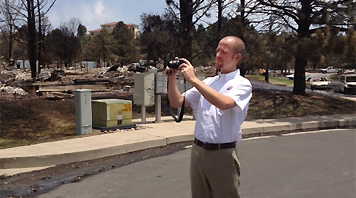|
RMIIA News Releases7951 E. Maplewood Avenue, Suite 110 Contact: Carole Walker, Executive Director Colorado's Deep Freeze Has Left Many Residents Mopping Up & Filing Water Damage Claims For Frozen Pipes: Insurance Advice For Homeowners & Renters. February 4, 2011 – Old Man Winter's blast of below-zero temperatures this week has left many Coloradans with a big mess—water damage from frozen pipes, now bursting as they thaw out. Insurance claims adjusters are busy assessing damage and helping people file claims. Some of the larger insurance carriers have brought in additional adjusters and have declared it an insured catastrophe to deal with the high number of damage claims resulting from this latest round of winter weather—extending from Northern Colorado, through Denver and South down to Colorado Spring and Pueblo. "Even a small amount of water can cause serious damage to your home," says Carole Walker, Executive Director of the Rocky Mountain Insurance Information Association. "The average water damage claim is estimated at $5,500, but can easily cost tens of thousands of dollars with a broken pipe spewing gallons of water onto floors, furniture and personal property." Standard homeowners insurance policies will cover most of the kinds of damage that result from a freeze. For example, you would likely be covered up to your policy limits if house pipes freeze and burst or if ice forms in gutters and causes water to back up under roof shingles and seep into the house. If you do discover damage, make temporary repairs and keep receipts, as those costs may be reimbursed under your claim settlement. Renter's policies will pay for damage to your personal belongings up to the policy limits. Cold Weather & Frozen Pipes: Winter Weather Insurance Damage Costs & Statistics: Advice on Filing a Claim
Avoiding Frozen Pipes
For more consumer information on insurance topics logon to www.rmiia.org. ### Rocky Mountain Insurance Information Association is a non-profit consumer information organization. Affiliated with the Insurance Information Institute, RMIIA has been serving consumers and the media since 1952. |
|
303-790-0216 • 800-355-9524 • Contact Us • Legal Notice, Disclaimer & Terms of Use
Home • About RMIIA • News Room • P&C Insurance Industry • Auto • Homeowners • Business • Catastrophes • Agent Resources • Events & Education • Brochures

